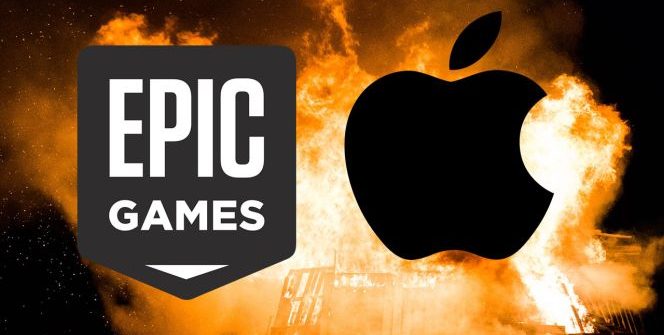Apple tried to prevent Epic Games from calling three witnesses, but the Judge that leads the US case denied the company’s demands, meaning they will also be part of the case.
Law360 reports that Epic Games didn’t disclose the witnesses’ names until the trial’s run-up, which Apple argued made „cross-examination” difficult. They also refused to produce documents that Apple required ahead of the pre-trial depositions, which allegedly included information about an „anti-Apple campaign,” which was launched by Facebook. The company with the apple logo also argued that the companies for which the witnesses work (Facebook, Microsoft and Yoga Buddhi Co.Ö are all „publicly aligned” in Epic’s favour.
In a sanctions motion filed on Friday, Apple wrote: „Epic’s conduct has unfairly placed Apple in a procedural Catch-22. Before the close of fact discovery, Epic did not indicate that it intended to call these individuals at trial — indeed, it did not even depose them — so Apple did not push the third parties to produce documents from their files. Epic’s procedural gamesmanship thus created this situation, and Epic should suffer the consequences from its third-party witnesses’ refusal to produce documents necessary for a fair cross-examination. These entities are certainly free to take sides, but if they are going to insert themselves into the lawsuit, then they should be subject to full and fair discovery.”
A week ago, a US Magistrate Judge denied Apple access to documents that allegedly prove Facebook’s bias. And Tim Sweeney’s company replied by saying Apple is „overreaching in an attempt to deprive the Court of important third-party proof at trial. During discovery, both Epic and Apple disclosed potential third-party witnesses at the company level. Neither Epic nor Apple objected to that approach. But third-party companies cannot testify at trial; only third-party witnesses can. As a result, it was clear to both parties that any third-party witness appearing on the other party’s trial witness list would be an individual not previously identified in the initial disclosures.”
The antitrust trial will begin on May 3. However, US District Judge Yvonne Gonzalez Rogers denied Apple’s demands, claiming that Epic didn’t breach disclosure requirements. „Having reviewed the record, and the parties’ briefing, the Court concludes that there has been no violation of the Rule 26 disclosure requirements. Epic Games promptly disclosed the individual identities of Mr Sharma, Ms Wright, and Mr Simon when Epic Games learned that these three individuals were confirmed to be appearing at the bench trial in this action. The failure to produce relevant documents, including documents relevant to the individual testifying witness, to both parties (here, to Apple) will be factored into the individual witness’ credibility, and, if necessary, may warrant the striking of testimony,” the statement read.
This all happens because Epic Games dodged Apple App Store’s and Google Play Store’s 30% cut on microtransactions, prompting both companies to throw Fortnite Battle Royale out.
Source: Gamesindustry
















Leave a Reply